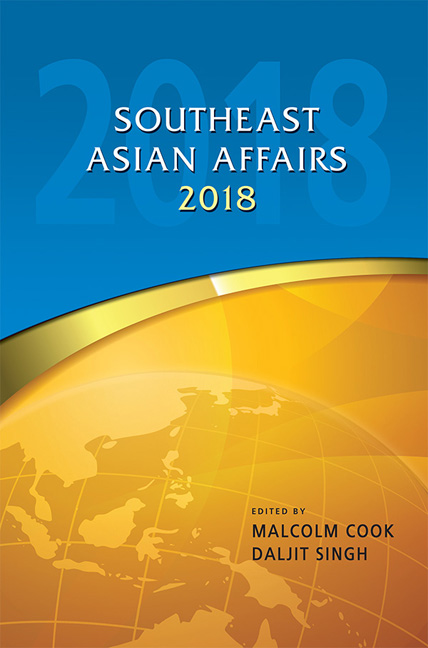Vietnam in 2017: Power Consolidation, Domestic Reforms, and Coping with New Geopolitical Challenges
from VIETNAM
Published online by Cambridge University Press: 08 June 2019
Summary
Three distinct characteristics of Vietnam's development in 2017 were the consolidation of power in the hands of the Communist Party of Vietnam (CPV) and its leadership, politico-administrative reforms, and fashioning a foreign policy to deal with a worsening external environment.
Consolidation of Power
The process of consolidation of power in the hands of the party and its leadership began after the CPV's Twelfth National Party Congress in January 1916. It picked up steam and led to several high-profile trials and a major purge in 2017.
This process included three elements: a campaign against corruption, efforts to rebuild and strengthen the party, and a crackdown on dissidents.
Anti-corruption Campaign
The Twelfth National Party Congress of the CPV resulted in a victory for the party's General Secretary Nguyen Phu Trong over Prime Minister Nguyen Tan Dung, and of the party over the state. Immediately after the congress, Trong moved to consolidate his power and that of the party, placing his supporters in the top positions of all the important commissions of the Central Committee, bringing control of the fight against corruption back to the party's Central Committee on Corruption Prevention and Fighting (CCCPF), and renewing the anti-corruption campaign. In 2017, Trong's position was further strengthened by the addition of two of his supporters — head of the Central Department of Internal Affairs Phan Dinh Trac and director of Ho Chi Minh National Institute of Politics Nguyen Xuan Thang — to the party secretariat, and the ousting from the Politburo of Dinh La Thang, a powerful protégé of former prime minister Nguyen Tan Dung.
The anti-graft campaign began with a move against the “biggest case” of economic corruption involving Vietnam Construction Joint Stock Commercial Bank (VNCB), where the bank's CEO Pham Cong Danh and his associates were charged with embezzlement and loss totalling over 401 million dollars.
On 24 January, Ho Chi Minh People's High Court upheld the lower court's 30-year prison sentence given to Pham Cong Danh and the prison sentences of between 19 and 22 years given to three other former executives of the bank.
Investigations of Pham Cong Danh eventually led to two major developments. In April, the party Central Control Commission recommended to the Politburo and the Central Committee to consider disciplinary measures against Dinh La Thang, member of the Politburo and party secretary of Ho Chi Minh City.
- Type
- Chapter
- Information
- Southeast Asian Affairs 2018 , pp. 407 - 428Publisher: ISEAS–Yusof Ishak InstitutePrint publication year: 2018

